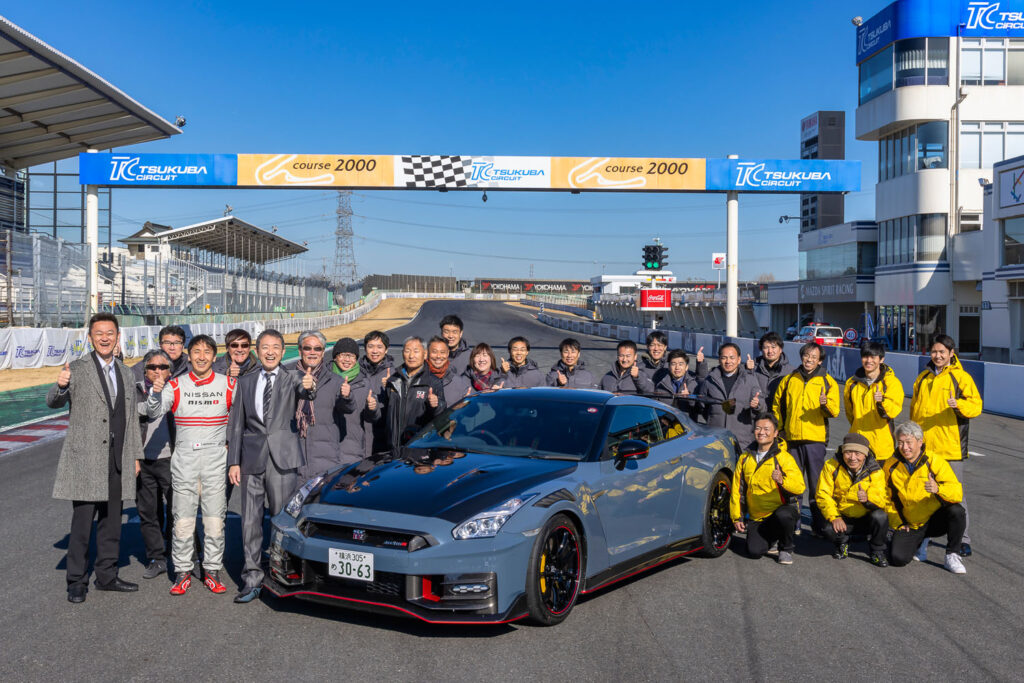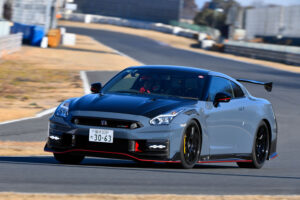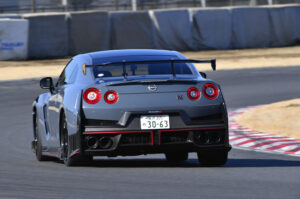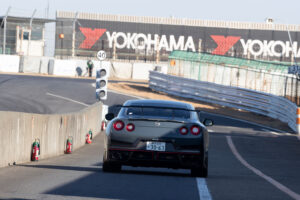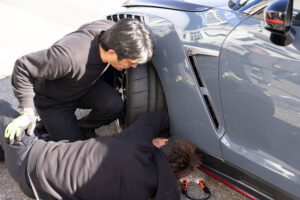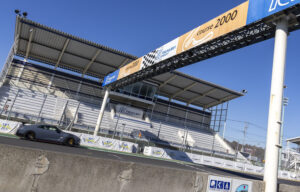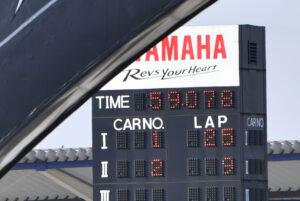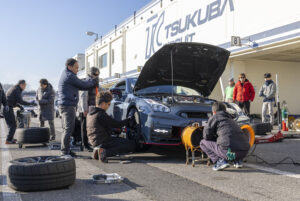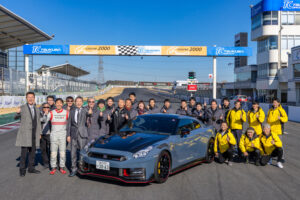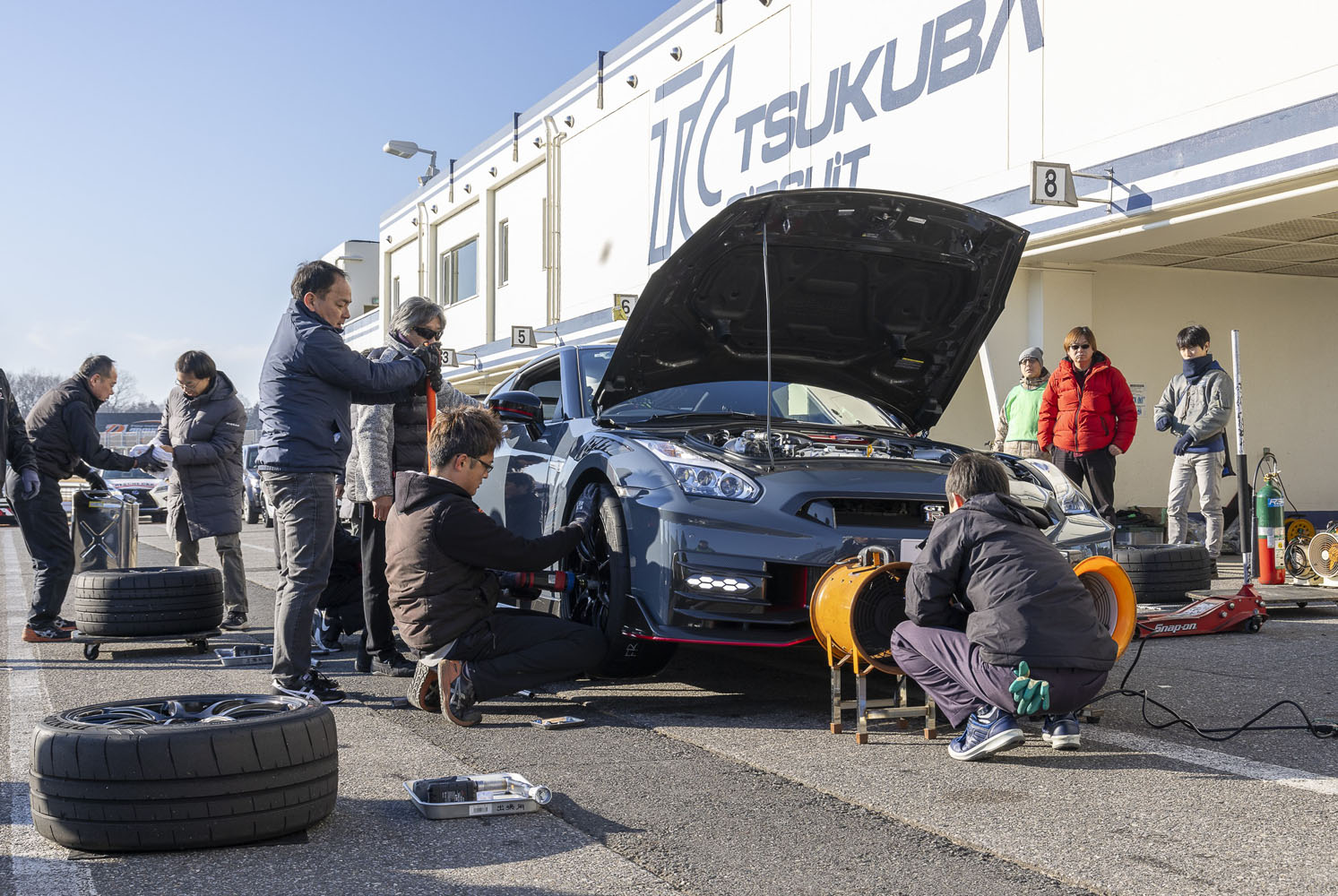A time close to 58 seconds set by a production car!
On 10 January 2024, the 2024 Nissan GT-R NISMO model (hereafter referred to as MY24) broke the fastest time set by a production car on the Tsukuba Circuit four years earlier than the 2020 model (hereafter referred to as MY20). The time was 59.078 seconds, which is an astonishing feat for a fully-stocked mass-production car to come so close to the 58-second mark at Tsukuba, where the benchmark is under one minute. So how did they manage to shave off the time? Let us reveal the secrets behind the speed of the GT-R NISMO, which has once again set a new milestone.
A challenge to beat the time set by GT-R itself
11 years have passed since Hiroshi Tamura gave the R35 GT-R, which was developed by Kazutoshi Mizuno based on an all-in-one concept, a drastic change of direction with different flavours for the ‘GT’ and ‘R’. The baton of responsibility for development has been passed to Takashi Kawaguchi, but the idea of clearly separating the different characters has not changed.
The standard car, which takes on the grand touring domain, was highly acclaimed with the introduction of the T-Spec set for 2021, which as a road car has acquired a gentleness that is close to that of premium European sports cars.
While the standard cars, including the T-Spec, are allowed to talk about evolution in terms of their worldview, the NISMO has to demonstrate its speed in terms of numbers. After all, it is Japan’s highest-performance car that can compete with the world’s super sports.
In addition, the MY24 features new aero parts and a front LSD as standard equipment to improve traction performance. The Atesa E-TS programme was also announced as having been changed to improve performance. What are the effects of these changes? It is NISMO’s fate that every time a new model is launched, it is full of topics with speed as the keyword.
The time attack, which should be called the graduation test for the MY24, was held at Tsukuba Circuit in Ibaraki Prefecture over two days on 9 and 10 January 2024.
The Tsukuba Circuit was chosen primarily because of its benchmark figures. The fastest time set by a production car so far is 59.361 seconds, set by the GT-R NISMO MY20 in December 2019 challenge not only to prove the evolution of the car, but also to rewrite its own time.
The same conditions apply to the challenge with a completely stock car, with only alignment adjustments and tyre pressure changes within the range of genuine parts, which the owner can reproduce.
On the day, almost the same development team members who set the fastest mass production car record were assembled. They were reassured by their knowledge of the know-how required to shave time at the Tsukuba Circuit. Dunlop tyres also provided full support. The pressure on driver Tsugio Matsuda must have been considerable, as there were no excuses for this system.
As a result, he recorded a Super Lap time of 59.078 seconds, 283 tenths faster than his previous time with only one set of tyres remaining. Although he fell just short of his target of reaching the 58-second mark, Matsuda took the best result by the arm. This was a true testament to his status as a top driver.
283 tenths of a second may sound like a fraction of a second, but at the Tsukuba Circuit, the difference is approximately 9.8m, which is the equivalent of two R35s in total length. Even with the naked eye, the distance is quite wide.





